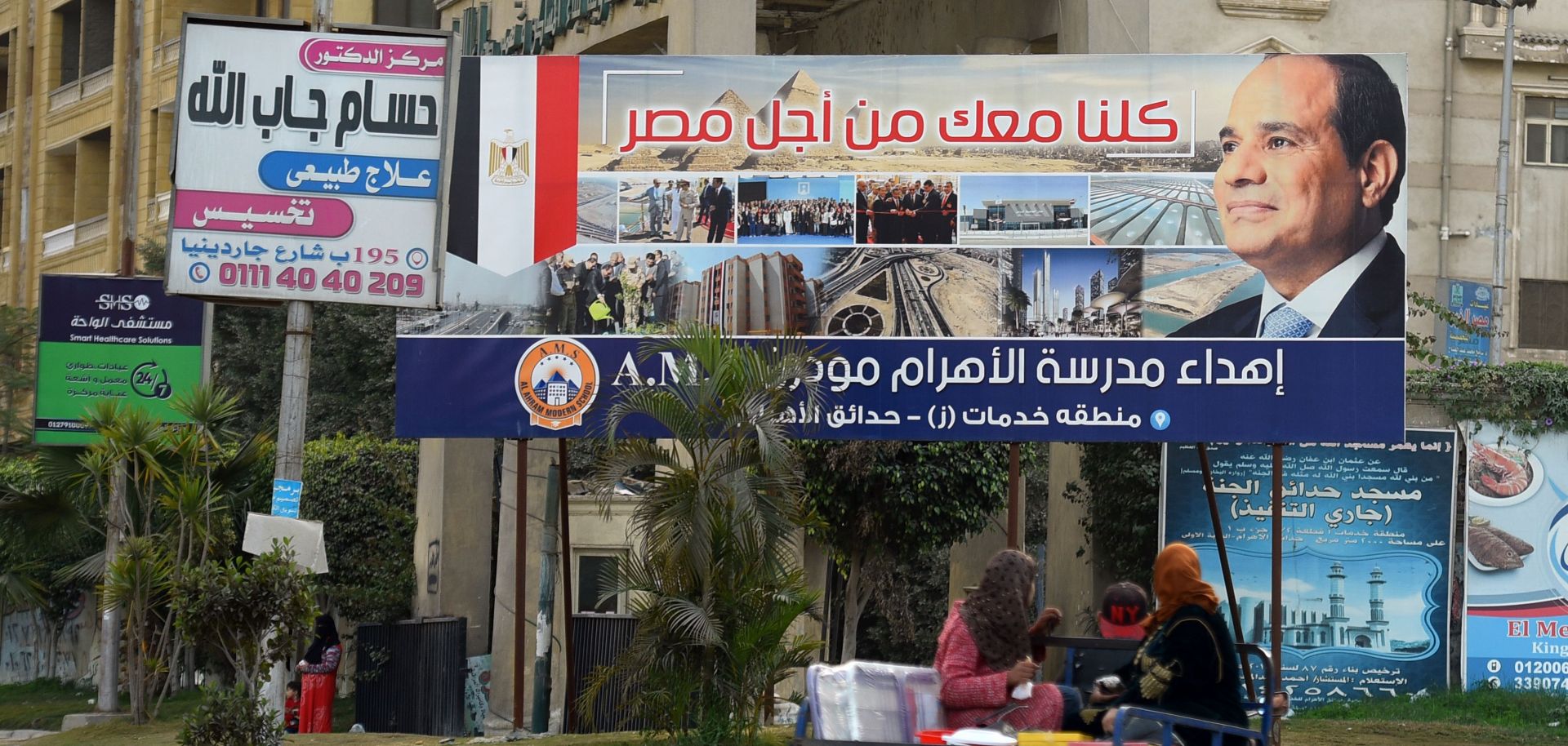GLOBAL PERSPECTIVES
In Egypt, the Revolution Rolls On

Feb 11, 2018 | 17:13 GMT

On Jan. 22, 2018, Egyptians in Cairo drive past a billboard bearing the image of President Abdel Fattah al-Sisi, who is running for re-election in a vote scheduled for March.
(MOHAMED EL-SHAHED/AFP/Getty Images)
Highlights
- On taking power in 2014, Egyptian President Abdel Fattah al-Sisi dismantled the deep state that formed under decades of authoritarian rule, only to replace it with his own version.
- Al-Sisi derives his power not from a single-party system — as many of his predecessors did — but from the military, the media and the youth population.
- The president's focus on maintaining power, to the exclusion of Egypt's social and economic problems, will eventually cause his demise.
Subscribe Now
SubscribeAlready have an account?
